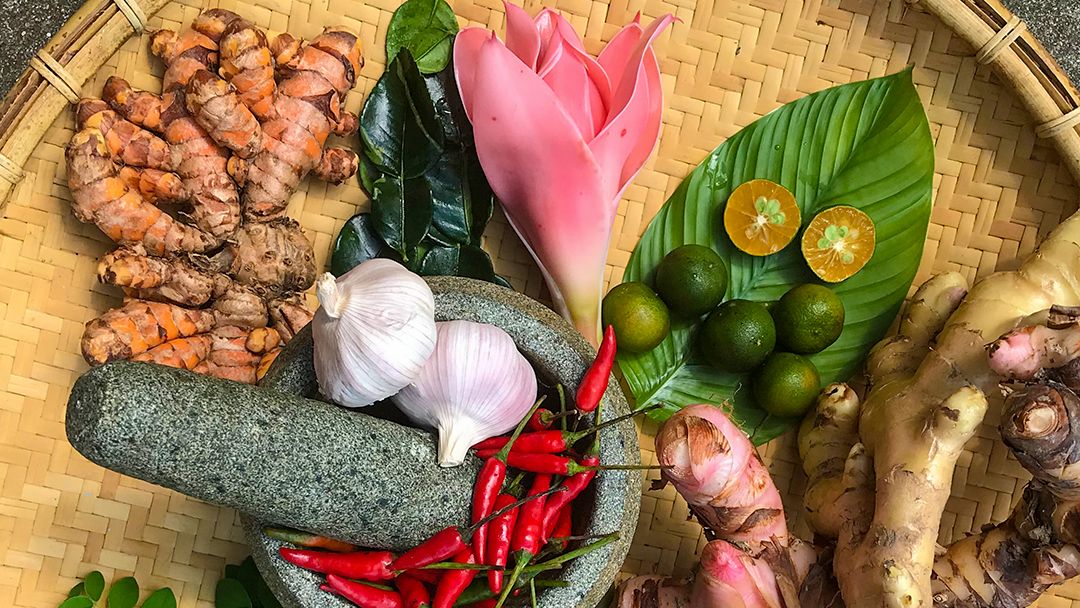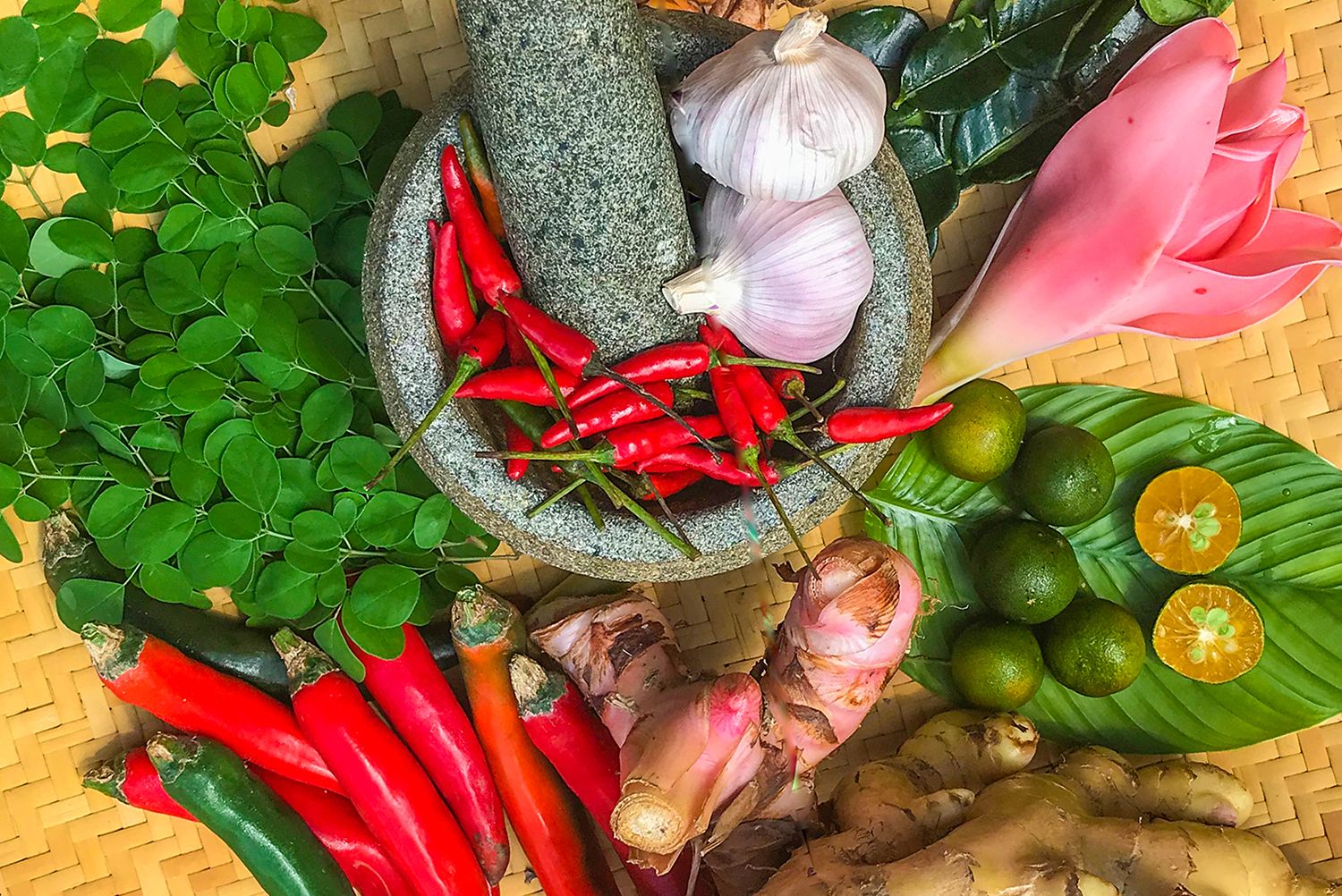
Hawa’s Artisan Kitchen in Lahad Datu
The background story.
Turning our passion into business during the Covid-19 Pandemic
My name is Itisha. When I completed my secondary school at the age of 17 in 1995, I was not really clear on what areas of studies I wish to pursue. I remember the day I needed to enroll for university and told my dad to fill in the forms on my behalf, “Just choose anything except for accounting, finance and economics” I told him. That was how clueless I was with my life. Fast forward the years of studies have earned me a BBA (Hons) in Marketing with Multimedia from Multimedia University in Cyberjaya, Malaysia and an MBA with Specialization in International Business from University of Southern Queensland in Australia.
If only I knew then that there was such a study on Gastronomy. The study of the relationship between food and culture, the art of preparing and serving rich or delicate and appetizing food, cooking styles of particular regions and the science of good eating. That would be the studies I should have taken. I only got to know about this field of study a few years back when I came across one of my favorite food entrepreneur Marion Grasby who studied Master of Arts in Gastronomy at University of Adelaide.
Anyways, I am not here to write my resume. I simply express myself better in writing and life of recent has been extremely challenging.
During the Covid-19 Pandemic our conservation tourism business Bike and Tours, well to say was badly hit is an understatement. The tourism business that Simon and I built over the years, has not only given us a comfortable source of income and lifestyle but also given our team the means of income to support themselves and their family.
Today, we live on minimal from the years of savings that we profited from Bike and Tours business. Soon, this savings will be dry. This dark tunnel that is ahead of us seems to be long and uncertain. So this is our way to punch covid in its face!
Simon and I have decided to make full use of our surroundings and to use our experiences in a different persona. While we wait for the tourism industry to be relevant once again, we have decided to venture into the food business. We have a number of moringa trees in our garden. So, when life gives you moringas - you make tea! Further information on our Moringa Tea Range here.
The other branch of food business that we would like to venture into is named in honor of my late mother, Hawa’s Artisan Kitchen, a local food delivery service within Lahad Datu. This venture is very close and dear to my heart. It has always been something I dream of doing. In some ways, we did it before when Simon, myself and our team served homecooked Malay meals to Bike and Tours guests from all over the world. We hosted numerous gatherings and accepted catering orders from friends and relatives.
Today, I find utter joy and peace at my retro styled, simple 4 stove burner kitchen in the rustic town of Lahad Datu. So why not turn this passion for cooking into a humble business and share homecooked Malay food from my mother’s recipes with you. I do after all have a professional chef husband to guide me on techniques and timing. I am also blessed to have a buyer expert father. Armed with Robinson Crusoe spirit, I trust him to travel from one market to the other. He takes shopping seriously and will be appointed as the main person to source for sustainable ingredients from various local farmers, fish mongers and poultry butchers (he just don’t know about his latest role - not just yet).
Hawa’s Artisan Kitchen - homemade with love.
A mother’s love for cooking.
Hawa’s Artisan Kitchen, is a tribute to my late mother., Hawa’s Artisan Kitchen specializes in authentic Malay dishes cooked with love from our kitchen to your home/office in Lahad Datu.
My late mother Hawa, was a talented home cook. She cooks with so much love and her utter joy takes shape when we asked for seconds or thirds. “You did justice to the food!!!!” she would say with a huge smile each time we finish her dishes. A wonder lady, she multitasked between her 9-5 job at the Malaysian Ministry of Defence, taking care of our home, caring for her parents and of course taking care of her little family that consisted of my brother Ishar, my dad and I.
We usually dine out on a Friday or Saturday night but majority of time we eat at home. An expert with Malay cuisines, my mother’s sensitive taste palate allowed her to quickly replicate recipes from other kitchens successfully. Her style of cooking and ideology towards meal presentation was simply. “The most important ingredient is love. If you don’t feel like cooking, then don’t cook and make excuses. Next, you need to enjoy your own cooking before expecting others to appreciate your food” she would advise me.
I only started cooking at the age of 26 when I was living on my own in Australia. Being raised all these years pampered with my mom’s food, my homesick moments included missing her Laksa Johor, Nasi Lemak, Beef Assam Pedas, Beggars Chicken, fish head curry and many more. Our cooking lessons between my mom and I, were through phone sessions. I had moments where I complained about not being able to cook so and so because I can’t find the specific ingredients in Toowomba or Adelaide (where I was living during my student and working days). She would calmly remind me to cook with love and not to make excuses. Improvise!!! Improvise on the ingredients, improvise with the usage of the cooking tools or methods to what is available on hand.
The first meal that we would like to share with you is my mother’s version of Laksa Johor. Laksa Johor brings back nostalgic memories of my childhood as it was our family bonding time to prepare this dish. Just removing the thousands of bones from the ikan parang (wolf-herring fish) took forever. It was usually a two days affair between preparation, cooking and finally savoring the meal!! At our family home we usually have our Laksa Johor with additional ingredients which is either poached shrimps or squid (depending on what’s freshly available at the market). So, you will see this replicated in our version of Laksa Johor. Ikan Parang or the wolf herring fish is not all the time available here in Lahad Datu. I would use a combo of ikan tenggiri (mackerel), dried fish, anchovies and shrimps for the gravy. I hope I live up to mother’s culinary legacy and I hope you enjoy the dishes we present from Hawa’s Artisan Kitchen to your dining table.
Laksa Johor
Laksa Johor as the name suggests originates from the southern state of Peninsular Malaysia – Johor. Laksa Johor is unique compared to other laksa’s as the thick gravy itself is made from creamy coconut and fish base compared to Assam Penang Laksa for with its tangy tamarind soup base, or Laksa Sarawak with its chicken broth spiced base. Another distinct feature of Laksa Johor is the noodles itself. Unlike most laksa that is paired with rice noodles, Laksa Johor is eaten with spaghetti!!! This heritage food from Johor tells a story! Laksa Johor is probably the first form of East meets West Fusion in Malaysia.
Long time ago, Sultan Abu Bakar of Johor (1833- 1895) travelled to Italy and fell in love with spaghetti Bolognese – like who wouldn’t right? Anyways, upon His Majesty’s return to Johor, he requested for his palace chef to recreate spaghetti sauce with something Malaysian. Hence, the birth of Laksa Johor – fish and coconut-based gravy. The preparation of the gravy itself is labor intensive as it takes a village to remove the bones from the wolf herring fish.
Laksa Johor (Vegan without onion and garlic version 无葱蒜)
Vegan Laksa Johor without onion and garlic is available at Hawa’s Artisan Kitchen. We spoke to a few vegetarian/vegan friends and contacts in Lahad Datu and we would like for you to try our version of Vegan Laksa Johor.
We had our fair shares of trials and experiment for our Laksa Johor Vegan version. We must be honest it is “same same but different” in taste compared to the original Laksa Johor version. I mean let’s face it, the hero of Laksa Johor is the fish gravy.
Whilst we are aware that there are mock versions of fish in the market today, we are not comfortable to use mock meat or mock fish for our dishes. So, for the vegan version, we have replaced the fish with vegetables such as pumpkin and sweet potatoes. For the umami flavor we use mushroom sauce, seaweed and vegan belacan. We use lots of local kampung ginger, lemongrass, torch ginger flower, galangal and omit garlic and onion from both our gravy and sambal. Ohhhh I can already hear some of my carnivorous friends saying “Ohhh but garlic and onion are vegetables- why you omit it?”. Well, I initially thought the same too, but here in Lahad Datu, most of Chinese/Buddhist vegetarian do not eat 5 type of pungent plants which includes garlic and onion.
How do you eat Laksa Johor:
A good gravy is judged by its thickness as the Laksa Johor dish is eaten with fingers – fork and spoon not needed.
Laksa Johor is served with the following condiments:
For the Vegan Laksa Johor version, the (V) indicated next to the list below would be included with your meal.
- Cucumber (V)
- Daun Kesum or Vietnamese coriander (V)
- Bunga Kantan or torch ginger flower (V)
- Taugeh or bean sprout (V)
- Kacan Panjang or long beans (V)
- Poh Chye or Chinese pickled raddish (V)
- Calamansi (V)
- Poached shrimp or squid (Hawa’s Artisan Kitchen version)
- Sambal Belacan or pounded chili with shrimp paste
- Vegan Sambal Belacan (V) – contains tomatoes, ginger, red chilies, birds eye chili, tamarind, vegan belacan and mushroom sauce
Hawa’s Artisan Kitchen Sustainability
Locally Sourced Ingredients:
The fresh ingredients we use to produce meals at Hawa’s Artisan Kitchen are locally sourced from Lahad Datu based farmers, fish mongers and butchers.
Give Back
For every meal you purchase from Hawa’s Artisan Kitchen, RM1.00 will be donated to the Bukit Piton Project. The Bukit Piton Project is a tree planting project aimed to restore the orangutan habitat in Sabah. That means you will be purchasing and eating for a cause!
Garden to Table
Some of the local herbs such as lemongrass, torch ginger and Vietnamese coriander comes straight from our garden.
Reduce Plastic Use – Reduce, Reuse and Rethink
The thing about packed food are the common use of cheap and convenient one time use plastic packaging. Right after our community cleaning work at Kampung Meruap in Sungai Kapur last year, we are sensitive towards one time plastic use. The damage it does to our environment must be contained. As such, at Hawa’s Artisan Kitchen we use eco-friendly packaging boxes, paper bags and natural products such as bamboo cutleries, banana leaves and coconut shells to pack and deliver the meals to your place.
Coconut Shell Bowls for environmental & community responsibility
The usage of coconut shell bowls was Simon’s idea to eliminate plastic use and our move towards zero waste in mind. It takes more effort, time and money to go down this road compared to succumbing to the conventional use of one-time use plastic packaging. However, the long unconventional way benefits:
- Local coconut sellers – the discarded coconut shell which are byproducts in the production of coconut milk, coconut oil; are now being purchased from local coconut seller as natural form of food packaging at Hawa’s Artisan Kitchen.
- Environmental responsibility – the refined coconut bowl can be safely discarded without harming the environment, can be reused by the buyer as a decoration or bbq starter.
- Job opportunity for the local community - The coconut shells that are purchased from the coconut sellers are then assigned to Lahad Datu based homemakers/housewives. This gives job opportunities to the homemakers to make additional pocket money by removing the husks from the discarded coconut shells and handcraft it to a refined form.
The beautified coconut shells are then transferred to Hawa’s Artisan Kitchen to be boiled & to ensure that each bowl are cleaned, safe & hygienic to be used as a food packaging material.
Selamat Menjamu Selera!

